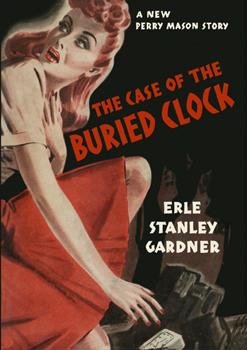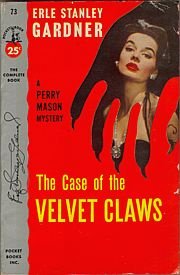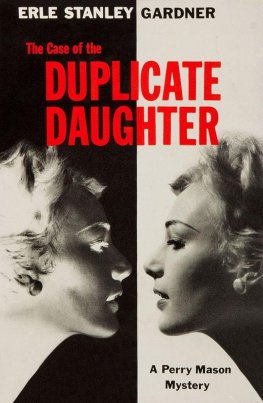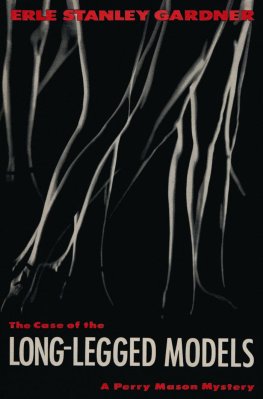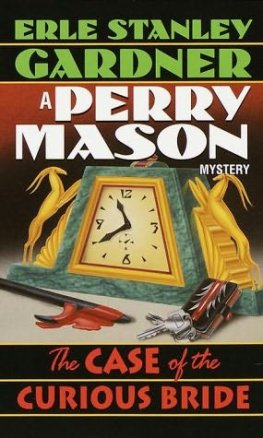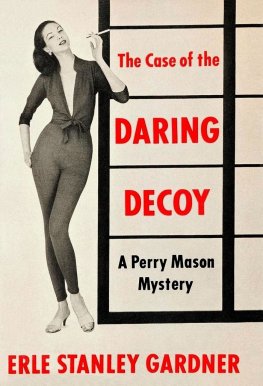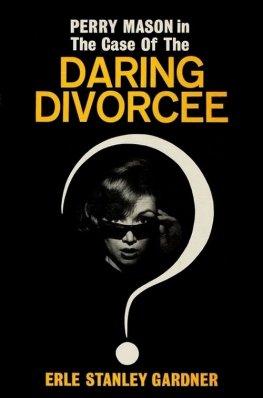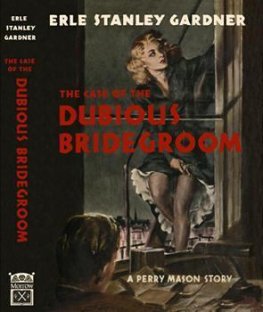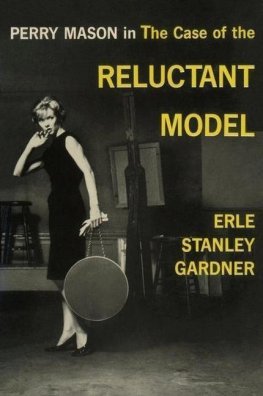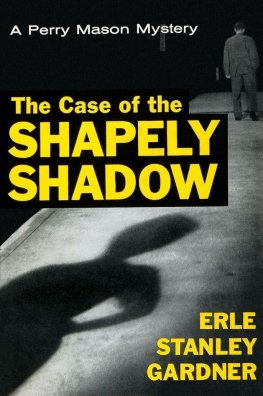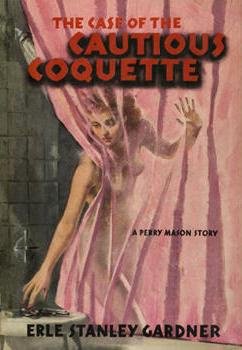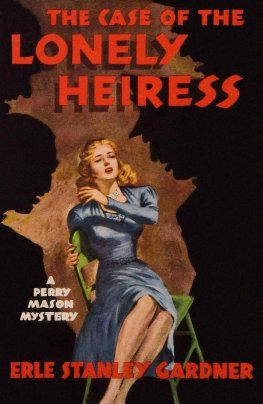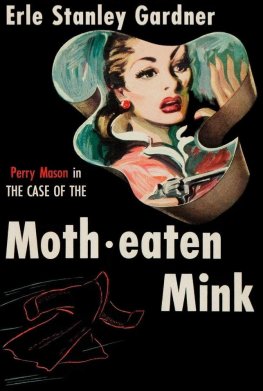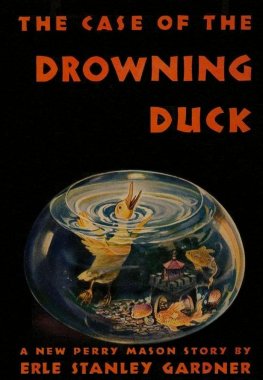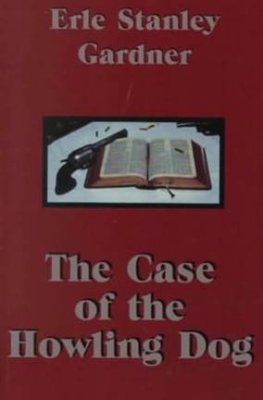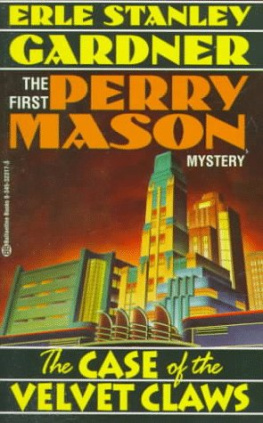Erle Stanley Gardner
The Case of the Deadly Toy
Some seven or eight years ago I met Dr. Lester Adelson when I attended a series of lectures given on legal medicine. He was then working under my good friend, Dr. Richard Ford, head of the Department of Legal Medicine at Harvard. Since that date I have watched Dr. Adelsons career with great interest. He is at the moment with Dr. Samuel Gerber, the coroner of Cuyahoga County in Cleveland.
I cant speak too highly of Dr. Adelsons ability, character and achievements, but he doesnt want me to speak of these. He wants me to tell something of the importance of legal medicine and what it means.
It is a mistake to believe that the forensic pathologist is always concerned with murder. It is a mistake to believe that autopsies are only for the dead. They are to help the living. There is another side to legal medicine. The courtroom side. It is a great mistake to let the highly partisan medical witness sway a jury to his way of thinking. The real scientist is never partisan.
When Dr. Adelson takes the witness stand it sometimes seems that the cross-examiner is scoring points. Actually he is doing nothing of the sort. Dr. Adelson doesnt believe that simply because a doctor is subpoenaed by the prosecution or the defense, by the plaintiff or the defendant, he owes any allegiance whatever to the side that subpoenaed him.
Dr. Adelsons creed is that an expert medical witness owes allegiance to only one master, and that is TRUTH.
As Dr. Adelson said in a letter to me, in which he discussed this problem, Insofar as it is humanly possible, he (the medical witness) should refrain from taking sides or shading his testimony. An answer favorable to the defense during cross-examination should be given cheerfully and promptly, without equivocation or stalling.
Quoting again from a letter in which Dr. Adelson outlined his ideas in regard to legal medicine and its importance to the public, these thoughts of his are in my opinion highly significant:
The forensic pathologist encounters many important problems not connected with a courtroom. The notion that the forensic pathologist deals only with homicide is a too narrow and obsolete view of his multifaceted day-to-day work. The modern medicolegal investigative office, whether it be called Coroners Office, Medical Examiners Office, or what you will, is in reality a public health office. Although it may appear paradoxical to equate an agency that deals exclusively with the dead with public health, basically the purpose of the office is to study the dead to help the living.
Actually todays medico-legal office is a dynamic kinetic institution that can and should make a valuable and unique contribution to the community. While not for a moment minimizing the importance of homicide investigation, nonetheless murder and manslaughter account for but a small fraction (less than 4 % in Cleveland) of the total case load. Accidental deaths of all types are equally deserving of study. They represent a tremendous wastage of human life. Post-mortem study frequently points the way towards measures which will prevent similar tragedies. This is true of traffic fatalities, industrial fatalities and lethal accidents in the home.
Suicide (self-murder, if you will) is twice as frequent as homicide and represents an equally untimely loss of human life. Study of these cases frequently yields data which indicate ante mortem tendencies towards self-destruction or furnish some explanation for the act, data which may give a measure of comfort to the bereaved family.
Sudden and unexpected death from natural causes may masquerade as suicide, homicide or accident and vice-versa. For many reasons it is essential that the true nature of these deaths be established. Moreover, sudden and unexpected natural death, whether it be the infant found in its crib or the previously apparently healthy adult stricken by coronary thrombosis, is a fertile field for research by the forensic pathologist in whose domain these catastrophic situations occur. Unsuspected infectious diseases, a threat to the community, may lead to sudden and unexpected death and thus present themselves to the forensic pathologist for consideration. Prompt and correct diagnosis leads to quick mobilization of prophylactic measures to prevent the development of other cases or finding them while there is still time for therapy.
Finally, the forensic pathologist has the responsibility of sharing his knowledge and experience and teaching those in a student status, undergraduate or postgraduate. The forensic autopsy table is probably the best point of departure for studying the effects of trauma, whether chemical, electrical, thermal or mechanical, on the human organism. Thoughtful observations in the post-mortem room point the way to rational treatment at the bedside.
In summary, the forensic pathologist studies those deaths where the public interest is involved. He is an impartial fact-finder in a most favorable position he can rise above the partisan conflict Never should he invade the province of the jury or usurp the prerogatives of the prosecutor.
I have attended a good many murder trials. I have listened to a good many expert medical witnesses. Some of them have been fair, impartial and just; some of them partisan, clever and biased.
Unfortunately it is this latter type which is in great demand. Too many lawyers like to call expert witnesses who help them win cases. The highly articulate partisan expert is called again and again while the conscientious really impartial expert is left to spend his time in the laboratory.
I wish that every reader who sees these lines and who is subsequently called on to do jury duty would remember the above words of Dr. Adelson.
Whenever you hear one of these experts deliberately trying to advance one side of the case, trying to impress the jury, feeding it just as much propaganda as is possible with his testimony, think back on these words of Dr. Adelson, think back on his quiet dignity, his high standards of ethics, his devotion to truth, and his absolute fairness to both sides.
The glib partisan expert may win cases for the side that calls him, but men like Dr. Adelson are the ones who are advancing the welfare of mankind and who are slowly but surely bringing about a more dignified concept of courtroom testimony.
And so, with deep respect and admiration, I dedicate this book to my friend,
LESTER ADELSON, M.D.
ERLE STANLEY GARDNER
MERVIN SELKIRK The rich son of a powerful man, he has perfect manners and a lightly concealed sadistic streak
NORDA ALLISON Breaking her engagement to Mervin was a good move, but soon after she begins to get very ominous letters
ROBERT SELKIRK Mervins seven-year-old son, he is allowed a deadly plaything a .22 pistol
NATHAN BENEDICT Nordas new suitor, he finds that their romance, and Nordas life, are both threatened
LORRAINE SELKIRK JENNINGS Mervins former wife, she desperately wants custody of her son Robert
BARTON JENNINGS Lorraines new husband, he appears calm and substantial
PERRY MASON Crack criminal lawyer whose responsibility to his client leads him into some strange byways
DELLA STREET Masons confidential, executive, and private secretary and his constant companion
PAUL DRAKE Head of the Drake Detective Agency, and Masons old friend, he sends along a maiden in distress
MR. AND MRS. JONATHAN GALES The Jennings next-door neighbors, they are disturbed to see Robert with a real gun and even more disturbed by the blood on the sidewalk
LIEUTENANT TRAGG The doughty Homicide man whose bark is worse than his bite if he doesnt suspect you of murder
HORACE LIVERMORE SELKIRK One of the most powerful men in California, Mervins father thought he could control anybody until he met Perry Mason

![Erl Gardner The Case of the Deadly Toy [= The Case of the Greedy Grandpa]](/uploads/posts/book/924181/thumbs/erl-gardner-the-case-of-the-deadly-toy-the.jpg)
